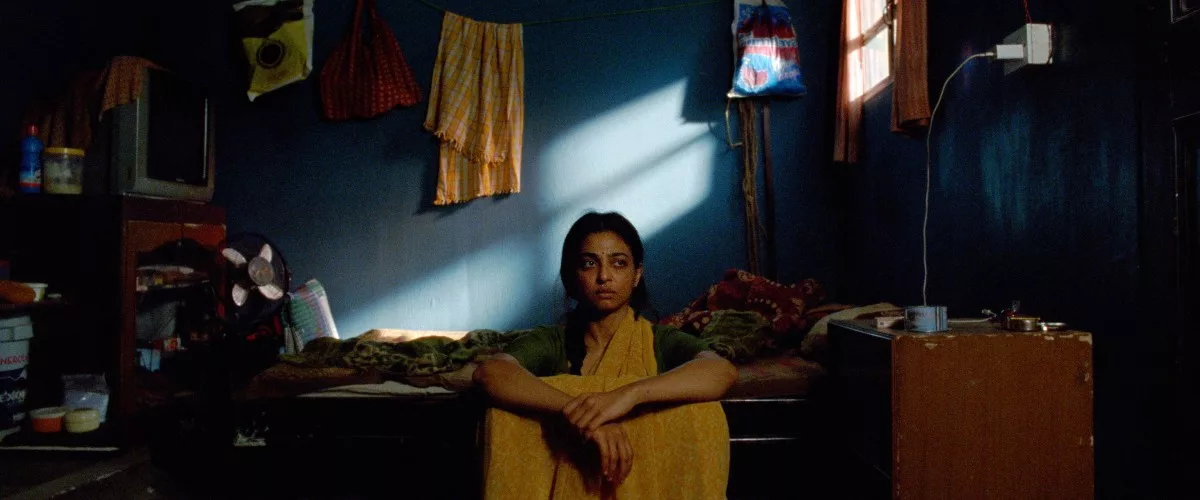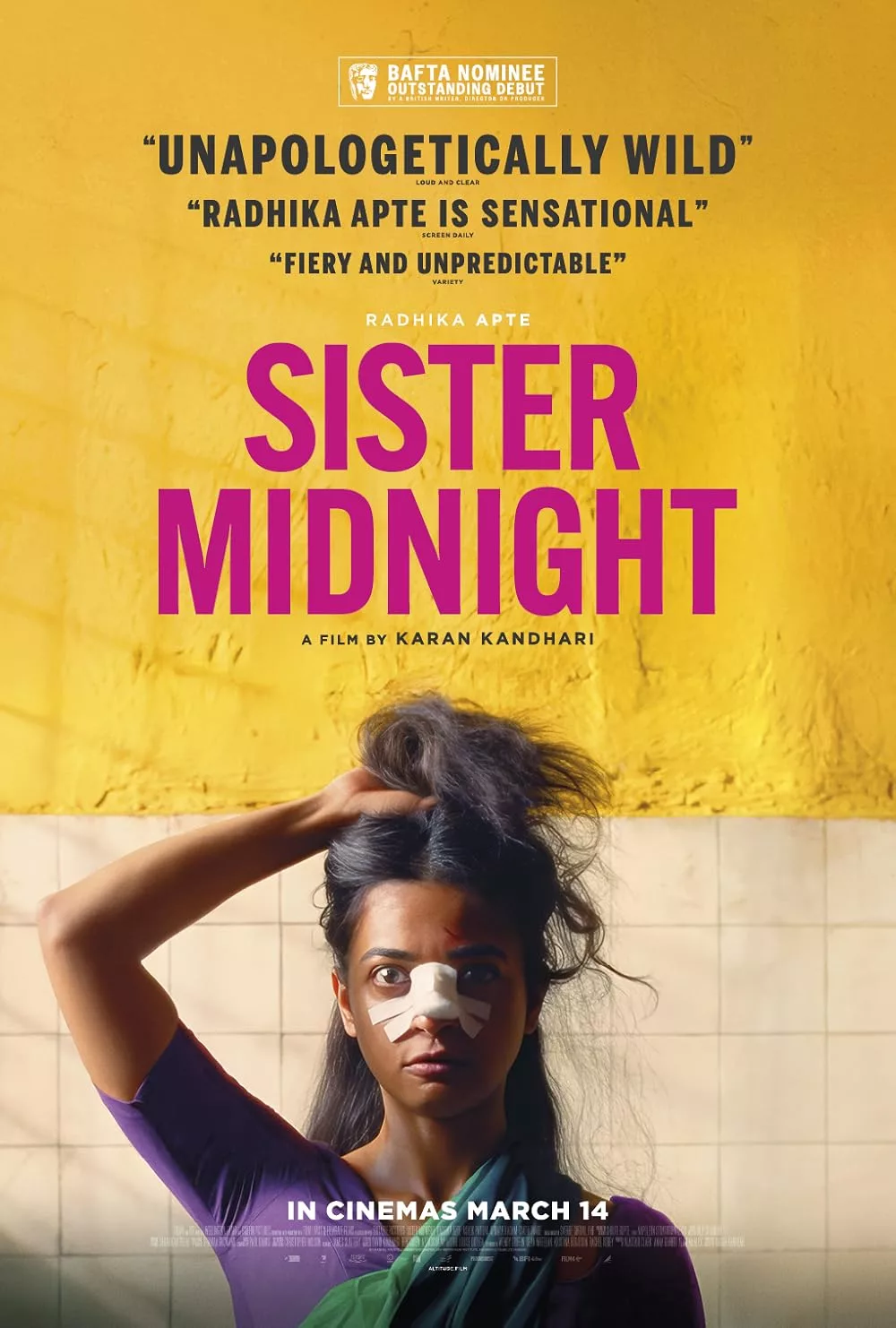Whether a lengthy to-do list or simple household maintenance, the simmering, fiery indignance at never-ending chore management has indeed threatened to unravel us all at one point. For Uma (Radhika Apte)—the tart, crass character of a woman on the brink in Karan Kandhari’s directorial debut, “Sister Midnight”—the pot has boiled over and set the whole house aflame. Exasperated by her arranged marriage to the wimpish Gopal (Ashok Pathak) and the domestic tenure accompanying his indolence, Uma is simply not cut out for the life she’s expected to live, slicing yams and mopping floors. The expectations of a new Indian wife, sexually, domestically, and emotionally, are responsibilities she has no care for.
Her brashness and Gopal’s clumsiness are profoundly repellent, and we find them each to be victims of circumstance. We sympathize with Uma’s impatience and frustration whilst also pouting a lip on behalf of Gopal’s timid reactions to her outbursts. The household simply does not work. Gopal fails to pull any weight, opting instead for late nights of wrongfully calibrated drunken limits, and Uma is clueless on domestic duties, passing her time strolling through the constantly-bustling side streets of Mumbai. They have no chemistry, or even compatibility, with any attempts at sexual encounters tumbling into desperately awkward territories.
She finds camaraderie in her neighbor, the caustically funny, happily married pseudo-mentor, Sheetal (Chhaya Kadam), and a seemingly discontented male coworker. As the Uma and the latter partake in another night of sitting idly on the roof for hours rather than going home, she stands up uttering “my ass hurts.” When he responds, “I think I’m used to it,” she utters plainly, “funny how we get used to things.” The concept of comfort in malaise is one she refuses to accept, and this exchange sets off the crux of the film.
Uma’s quest for variety and stimulation results in a bountiful return via a break into psychosis, as her grievances start to shatter the rules around her. And so she becomes a woman transformed, now inhabiting the role of a feral, fable-like creature with nighttime jaunts, goats, vomiting, and horror house archetypes abound. Darkly funny and pointedly chaotic throughout, “Sister Midnight” steams full force ahead on its concept, and Kandhari’s vision is blisteringly clear. Utilizing a spin on the poster for “Taxi Driver” for “Sister Midnight,” he already prompted parallels towards the polarities of gendered monstrousness, this time asking: What causes a woman to fly off the handle? What might that look like?
“Sister Midnight”’s surrealist disposition diverges from the road of the poster’s source material, and does so creatively. But in the same way “Taxi Driver” is ultra-Americana, Indian culture and its expectations and conventions are the backdrop piloting Uma’s descent into insanity. Though there’s something to be said about general, non-cultured laws of social femininity, it doesn’t say much other than: what if that’s not what women want? It’s certainly not a profound thesis, but alas, it is one vehemently adhered to, and amidst all the madness is a film that doesn’t lose its spirit.
The stray from reality is not limited to “Sister Midnight”’s more terrifying aspects; it also lines itself within the fabric of its comedy, adopting a charm akin to Wes Anderson, although with a little more teeth. Uma’s repartee accounts for much of the laughs, but even more so is Apte’s ferociously committed physical performance. There are laughs aplenty, even as “Sister Midnight” begins to lose creative steam, with the wheels falling off, and the further it falls into the repetitive macabre. But Apte remains the glue holding it all together as the film imagines its prototype of the monstrous feminine.




















